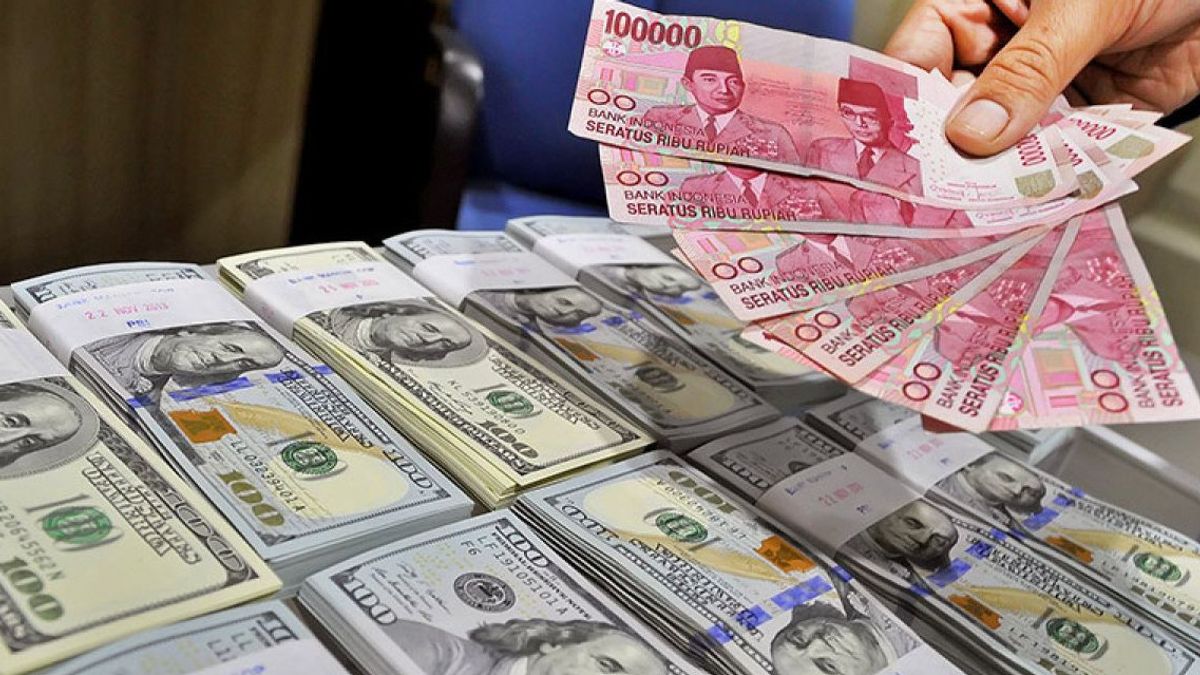JAKARTA - The rupiah exchange rate against the US dollar continues to weaken. Quoting Bloomberg data on Thursday, December 19 at 14:22 WIB, the rupiah exchange rate spot fell 202.50 points or 1.26 percent to the level of Rp. 16,300 per US dollar.
An analysis of Apindo's Banking and Financial Services Economic Policy, Aviliani, said that the movement of the rupiah still relies heavily on foreign portfolios so that when there is an attractive yield or incentive in the US, the flow of capital tends to return there, which causes rupiah to weaken.
"When there are attractive yields in the US or attractive incentives in the US, they tend to, it looks like the dollar goes home, so usually the rupiah tends to weaken," he said at a press conference, Thursday, December 19.
According to Aviliani, one of the solutions to stabilize the rupiah is to strengthen the Export Result Foreign Exchange (DHE), although currently the number of DHEs is still low compared to the import volume.
In the future, Aviliani conveyed that it is important for the government to develop export-based businesses with supporting incentives and policies, not only in the downstream sector, but also in the upstream sector.
"Because of that in the future, businesses that have to be developed by the government with incentives and all kinds of policies must be export-based. Exports, we talk about not just downstreaming, but also upstream. Now we often forget the upstream," he said.
According to Aviliani, this causes imports to be higher than domestic industrial products, so the added value generated by the industry is also low. This has an impact on the low foreign exchange collected.
"Well, that's what the government has to think about in the future is related to export orientation, therefore, in my opinion, the Department of Industry has started to map which added value is high, then the incentives also need to be prepared," he explained.
Aviliani said that because currently the existing incentives are not quite effective. Where the stability of the rupiah in the future will depend heavily on this effort.
According to Aviliani, the sector most affected by the weakening of the rupiah is an import-dependent business. When the rupiah weakens, import costs increase, and the sector's competitiveness decreases.
To survive, Aviliani said that many companies are forced to carry out efficiency which often leads to termination of employment (PHK) and also has the potential to cause inflation due to rising prices of goods due to weakening of the rupiah.
BACA JUGA:
"Well, this efficiency is usually the result of layoffs, then this efficiency also results in various things so that they can still survive if they can survive, in the end they can increase the price of goods. So inflation can also occur due to the weakening of the rupiah," he said.
Aviliani said that although most sectors showed positive growth, there were two sectors that needed more attention. The clean water sector and government consumption experienced very low growth, even though this sector is important for the welfare of the community and plays an important role as an economic stimulus.
"In fact, what is bad is clean water, so in my opinion, what needs to be considered is that what is related to the community is a lot of attention, it actually has a very low growth in clean water. Then the second thing that also grows low is government consumption. Even though government consumption is also important to be a source as well as a stimulus. The two actually need to be considered. Others are actually almost positive," he concluded.
The English, Chinese, Japanese, Arabic, and French versions are automatically generated by the AI. So there may still be inaccuracies in translating, please always see Indonesian as our main language. (system supported by DigitalSiber.id)
















